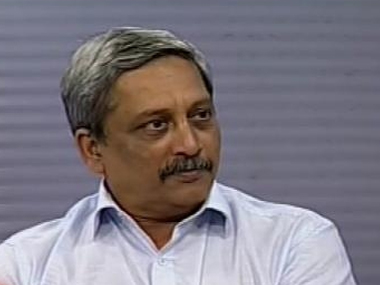Defence minister Manohar Parrikar seems to have spilled the beans on something everybody knew and has been talking about and his words speak volumes about the business environment in India. The comment in question is the one reported in The Indian Express on Sunday (31 July 2016). Believably, referring to the Aamir Khan incident of 2015, which had kicked off a storm of protests across the country, the minister has said that “anyone speaking against the country must be taught a lesson in the same way that an “actor” and an “online trading company” were taught”. It is to be noted that the minister did not take the name of Khan or Snapdeal, a company which had the actor as its brand ambassador then. Snapdeal took a hit as a consequence to Aamir’s comments. However, it was pretty clear that Parrikar was referring to Aamir and Snapdeal. Here are the exact words of the minister as reported by the newspaper: “Actorne jeva hey kela, thehva jya company la toh advertise karat hota… online trading company hoti. Aple log thoda jaste hoshar ahet. Mala mahite ahey there was a team which was working on this… They were telling people you order and return it… The company should learn a lesson, they had to pull out his advertisement… (When the actor did this… then the company which he was endorsing was… an online trading company. Some of our people are very smart, I know. There was a team which was working on this. They were telling people you order and return it… The company should learn a lesson, they had to pull his advertisement).” Before driving home the point being made in this article, here is a recap of what happened in 2015. Khan at a function in November 2015 had said that there is a sense for fear and insecurity in the face of rising violence against minority communities in India. “That does indicate that there is a sense of growing disquiet. Growing sense of despondency. You feel depressed, you feel low… why is it happening? This feeling exists in me too… I can’t deny that I am alarmed… For any society it is very important to have a sense of security,” he said. [caption id=“attachment_2889642” align=“alignleft” width=“380”]  File image of Manohar Parrikar. CNN-News18[/caption] He also said his wife Kiran Rao, a filmmaker, even wondered whether they should be moving out of the country in order to secure their child’s future. Aamir’s comments kicked off a row, with angry Hindutva elements and attacking the actor, who thought that his comments brought bad name to the country. They even questioned his patriotism. The actor himself released a statement pointing out the irony in the reaction, which proved him right on the rising insecurity among the minorities. Soon after the actor’s comments, Snapdeal also faced the wrath of the hate mongers. The company’s app was downrated and a few months later the company decided not to renew its advertising contract with the actor. The minister’s comments, however, clearly reveal that Snapdeal’s decision to not continue with the actor was a forced one. In all likelihood, referring to the online Hindutva brigade, who was in forefront in attacking the actor and the company, he has said there was team a who campaigned against Snapdeal urging customers to order a product and return it - a strategy that would hit the company where it hurts the most. Reverse logistics - a term that denotes such returning of products and the costs incurred on that count - has been one of the worst nightmares of the Indian e-commerce companies. This report in the BusinessWorld magazine points out that the courier companies sometimes charge up to 10 percent on the e-commerce companies for a product return. In 2015, when Snapdeal was under attack, the e-commerce space was witnessing fierce competition. As part of the customer acquisition attempts, the companies were giving discounts and also had extremely lenient product return policies. Such returns have had deeply negative impact on the costs these companies incur and their financial performances. (Faced with new government rules some of these companies have amended their style of functioning.) The strategy used by the online team, who Parrikar thinks were thoda jaste hoshar (very smart), to teach Snapdeal a lesson needs to be seen in this context. It is clearly a below-the-belt blow. It is also ironical that this happened at a time when prime minister Narendra Modi shouts at the top of his voice at all platforms available how his government has turned India into an investor’s safe haven. He has been consistent in saying that the NDA government has improved the ease of doing business in India. But what Parrikar’s comments show is that the ease in doing business comes with conditions. The first one of these is that businessmen should be careful not to hurt the “sentiments” of the majority community or of those who think are their protectors. It shows that even the business environment in the country is vitiated by hate and violence. It is all the more shocking that this happened in the high-technology-oriented e-commerce, one of the sectors key to Modi’s Digital India programme. This is not no-holds-barred business, which the BJP and Modi promised in the run-up to the elections. Businesses and, in turn, economy can thrive only in an environment of tolerance. Richard L Florida, professor at University of Toronto supports this contention in his paper on Technology, Talent, And Tolerance. (Read here.) The paper that analysed high-tech centres of the US such as Silicon Valley found that “a continuing commitment to openness and diversity across all segments of the population is a necessity if the New Economy is to continue to thrive”. This theory holds true not only for the US but all nations, including India. It is high time the Modi government understood this.
Businesses and, in turn, economy can thrive only in an environment of tolerance. It is high time the Modi government understood this
Advertisement
End of Article


)

)
)
)
)
)
)
)
)



